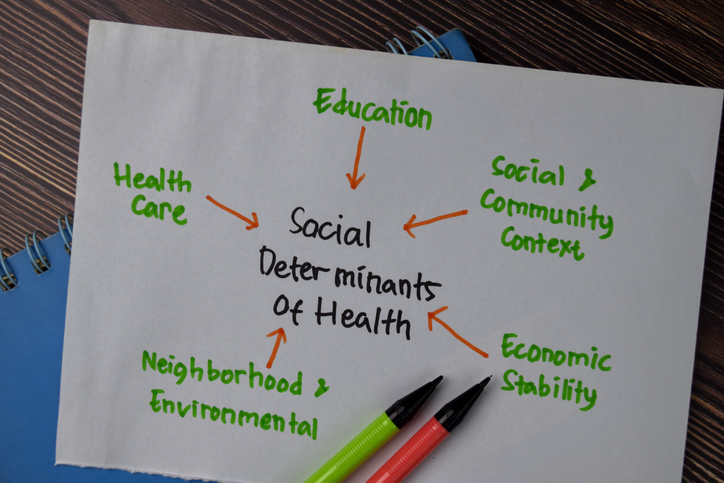The Centers for Medicare and Medicaid Services (CMS) has clarified requirements for state Medicaid programs choosing an “innovative option” to “reduce health disparities and address unmet health-related social needs.”
Medicaid managed care contracts can “address social determinants of health,” by providing non-health benefits to enrollees for housing, food, education, transportation, air conditioners, or electric replacements for gas stoves “in lieu of a service or setting (ILOS)” usually provided by state health plans, states a CMS guidance letter to state health directors.
ILOSs can “improve access to health care and help address many of the unmet physical, behavior, developmental, long-term care and other (social determinants) of Medicaid enrollees,” states the CMS.
‘Agenda Is Radical’
The goal of providing these social services is not to improve the health of Medicaid recipients, but to achieve equity, says The Daily Skirmish, an online blog.
“The real agenda is radical egalitarian redistribution of income,” stated the blog on January 18. “No one is asking how much this is going to cost.”
Tax-exempt hospitals spent $2.5 billion from 2017 to 2019 on social programs thought to improve the overall health of the population served, according to a study in the Journal of the American Medical Association cited by the blog.
“Other researchers found no association between overall community benefit spending and hospital readmission rates,” states the blog.
‘Questions Get Nosier’
All patients are now probed for information unrelated to medicine, says Matt Dean, the senior fellow for health care policy outreach at The Heartland Institute, which co-publishes Health Care News.
“It seems like those questions get nosier every year,” said Dean on The Heartland Daily Podcast on January 26. “They might ask you things that have nothing to do with health care at all—like where you live, who lives with you, do you have a gun in the house, do you have any family member returning from the military.”
The answers to the questions generate a score which is then recorded in a patient’s medical record, says Dean.
“The scores might play into whether or not you get care or the kind of care you get, or how much money is reimbursed to the hospital system, or to the insurance company, or to the provider,” said Dean. “It’s a great idea if you’re a lobbyist and you’re trying to get information that will build a metric so that you can get more money in your area.”
Using social scores in health care allows money to be diverted to other programs, like the Office of Climate Change and Health Equity in the U.S. Department of Health and Human Services, says Dean.
“It always seems to come back to that,” said Dean.
AnneMarie Schieber (amschieber@heartland.org) is the managing editor of Health Care News.
